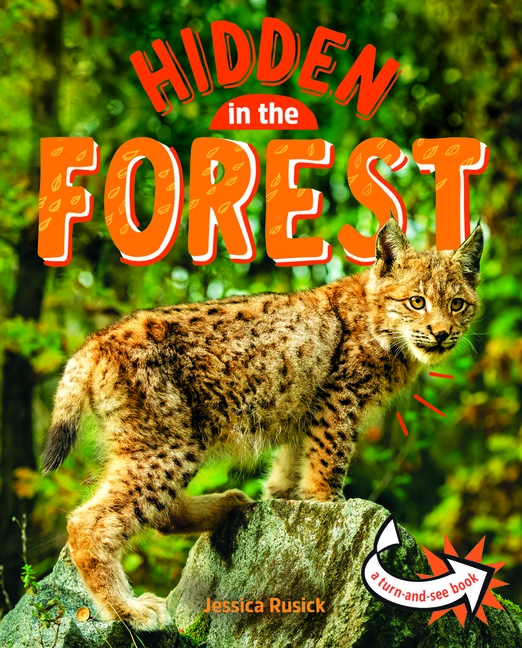Animals Hidden in the Forest
by Jessica Rusick (Author)

 Locate at a Library Near You
Locate at a Library Near You WorldCat is the world's largest library catalog, helping you find library materials online.
Find books about:
More books in the series - See All
School Library Journal
Gr 2-4--Each book introduces 13 animals from a common habitat through a spot-the-animal feature. A photograph on the right-hand page shows the hard-to-see creature in its environment, along with one or two facts and the question: "What is it?" A page turn reveals a clear, full-body view; the name of the animal; and a bit more information about its features and behavior. The visual presentation effectively shows the different ways animals can hide. In some examples, a portion of the body is clearly visible, but not the whole thing, like the Gila monster in Desert and the polar bear in Snow; others highlight the way colors and surroundings can create effective camouflage, like the cuttlefish in Ocean and the common frog in Forest. In some, but not all, examples, the data provided on the second page relates to the creature's ability to hide, like the dead leaf butterfly in Forest and the harp seal in Snow. In a few cases, the two or three sentences offer interesting bits of information that are not related to disguise, like the black-tailed jackrabbit in Desert and the snowy owl in Snow. VERDICT Engaging and interactive titles for browsers.
Copyright 2022 School Library Journal, LLC Used with permission.Review quotes
JNF051100 - Juvenile Nonfiction | Science & Nature | Environmental Science & Ecosystems
JNF003000 - Juvenile Nonfiction | Animals | General
Camouflage (Biology)














